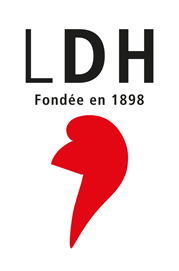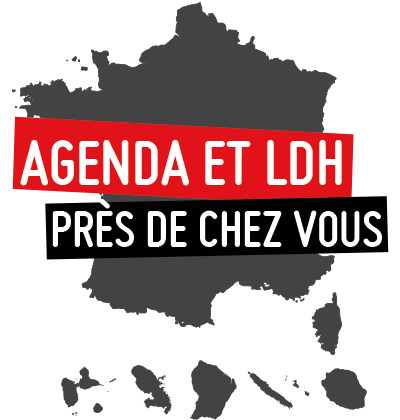Lettre dont la LDH est signataire
Members of the National Council of the Slovak Republic
Námestie Alexandra Dubčeka 1
812 80 Bratislava 1
22 October 2021
Dear Members of the National Council of the Slovak Republic,
We are writing on behalf of 110 organizations to express our deep concern regarding current threats to women’s1 health and reproductive rights in Slovakia.
At this time Parliament is debating draft legislation2 that, if adopted, would impose new barriers to accessing lawful abortion care, harming women’s health and well-being, and undermining their decision-making and privacy. It would also significantly hinder access to medically accurate information on abortion. If enacted, the legislation will create dangerous chilling effects on the provision of lawful abortion care in Slovakia, putting the lives and health of women at risk, and increase the harmful stigma surrounding abortion.
The legislative proposals seek to extend the mandatory waiting period currently required before accessing abortion on request, and to oblige women to state the reasons for seeking an abortion and provide other private information when requesting an abortion. Such information would then be transmitted to the National Health Information Center. The proposals also seek to restrict the information that medical professionals can provide publicly about abortion care, and to strengthen the dissuasive nature of the information doctors are already required to provide.
Our organizations are deeply concerned by these proposals. If adopted, each of these proposals will contravene international public health guidelines, clinical best practices and Slovakia’s international human rights obligations.
The World Health Organization (WHO) has outlined that countries should ensure that women’s decisions to access lawful abortion care are respected and that abortion care is “delivered in a way that respects a woman’s dignity, guarantees her right to privacy and is sensitive to her needs and perspectives.”3 International human rights mechanisms have stressed that states must ensure the availability, accessibility and quality of abortion services in line with the WHO guidelines. They have called on states, including Slovakia, to remove barriers to safe and lawful abortion, including mandatory waiting periods, mandatory and biased counseling, and lack of confidentiality and privacy.4 United Nations treaty bodies have found that denial of access to abortion can amount to violations of multiple human rights, including freedom from cruel, inhuman or degrading treatment and the right to health.5 In addition, the European Court of Human Rights has held that states have “a positive obligation to create a procedural framework enabling a pregnant woman to exercise her right of access to lawful abortion.”6
Extending mandatory delays in the provision of safe abortion care: The proposed increase of the mandatory waiting period from 48 to 96 hours and its proposed application to all abortions except when the woman’s health or life is at immediate risk would substantially increase delays in women’s access to abortion care, thereby placing their health and lives in jeopardy.
The WHO has outlined that “[m]andatory waiting periods can have the effect of delaying care, which can jeopardize women’s ability to access safe, legal abortion services.”7 The WHO has underlined that “[o]nce the decision [to have an abortion] is made by the woman, abortion should be provided as soon as is possible” and without delay.8 Mandatory waiting periods also lead to discrimination and social inequities as they increase the financial and personal costs involved in obtaining lawful abortion by requiring at least one extra visit to a doctor prior to abortion.
Mandatory waiting periods also undermine women’s agency and decision–making capacity. The WHO has made it clear that mandatory waiting periods “demean[] women as competent decision–makers”9 and specified
that medically unnecessary waiting periods should be eliminated to “ensure that abortion care is delivered in a manner that respects women as decision–makers.”9 International human rights mechanisms have repeatedly called on Slovakia to eliminate mandatory waiting periods prior to accessing abortion care.10
Restricting access to medically accurate information on abortion: The proposed prohibition on so–called “advertising on the need or the availability” of abortion care would restrict doctors’ and healthcare facilities’ ability to provide evidence–based information on abortion and where women can access lawful abortion. The legislation would have a chilling effect on the provision of such information by medical providers, which would result in further restrictions on women’s access to information on lawful abortion care and thus infringe on their right to information and jeopardize their health and safety.
Besides restricting doctors’ ability to publicly provide medically accurate information on abortion, the proposals seek to strengthen the dissuasive nature of the information doctors are already required to provide to women seeking abortion.
International human rights mechanisms have underlined that legal restrictions on evidence–based information on sexual and reproductive health, including safe and legal abortion, contradict states’ obligations to guarantee women’s right to the highest attainable standard of health. They have made it clear that “[s]uch restrictions impede access to information and services, and can fuel stigma and discrimination” and have called upon states to “[e]nsure that accurate, evidence–based information concerning abortion and its legal availability is publicly available.”11 Similarly, the WHO has stressed the importance of ensuring access to evidence–based information on abortion and the entitlements to lawful reproductive health care.12
The international human rights mechanisms and the WHO have also highlighted the states’ obligation to ensure women can access good quality information on sexual and reproductive health that is scientifically and medically accurate and to refrain from “censoring, withholding or intentionally misrepresenting” such information.13 To this end, the UN Committee on the Rights of the Child has recently urged Slovakia to ensure that “health–care professionals provide medically accurate and non–stigmatizing information on abortion.”14
Obliging women to state reasons for abortion: Requiring women seeking an abortion to state the reasons for their decision, which is often a very personal and private matter, could deter women from seeking care within
the formal health system.15 International human rights mechanisms have already urged Slovakia to “[e]nsure the confidentiality of the personal data of women and girls seeking abortion, including by abolishing the
requirement to report the personal details of such women and girls to the National Health Information Centre.”16
If adopted, this legislation will wholly contradict international public health guidelines and clinical best practice. It will undermine Slovakia’s compliance with its obligations under international human rights treaties to guarantee women’s rights to health, privacy, information, to be free from inhuman or degrading treatment, and the principles of non–discrimination and equality in the enjoyment of rights. In addition, the adoption of these proposals will be contrary to the fundamental international legal principle of non–retrogression.
In its 2019 review of Slovakia, the UN Committee on Economic, Social and Cultural Rights explicitly urged the state to refrain from any retrogression in relation to women’s sexual and reproductive health rights.17 We call on all Members of Parliament to reject these regressive and harmful legislative proposals concerning access to abortion care and to refrain from further attempts to restrict and violate women’s reproductive rights in Slovakia.
Yours sincerely,
Lire la lettre et la liste des signataires
Paris, le 03 novembre 2021


